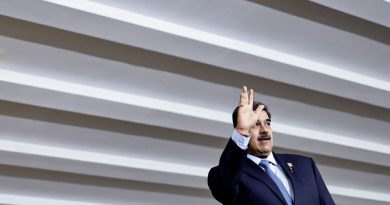Australia reverses 2018 decision to recognise west Jerusalem as Israeli capital
Sydney (Reuters) — Australia on Tuesday reversed a decision of the previous government to recognise west Jerusalem as the capital of Israel, saying the status of the city should be resolved through peace negotiations between Israel and the Palestinian people.
Foreign Affairs Minister Penny Wong said Australia “will always be a steadfast friend of Israel” and was committed to a two-state solution in which Israel and a future Palestine coexist in peace within internationally recognised borders.
The government “recommits Australia to international efforts in the responsible pursuit of progress towards a just and enduring two-state solution”, she said in a statement.
Israel’s Foreign Ministry voiced “deep disappointment” with the decision and said it would summon the Australian ambassador.
“Jerusalem has been the capital of the Jewish people for 3,000 years and will continue to be the State of Israel’s eternal and united capital, regardless of this-or-that decision,” the ministry said in a statement.
Previous Prime Minister Scott Morrison had reversed decades of Middle East policy in December 2018 by saying Australia recognised west Jerusalem as the capital of Israel but would not move its embassy there immediately.
Former US President Donald Trump had recognised Jerusalem as the capital a year earlier, without elaborating on the boundaries of a city whose eastern sector – the location of major Jewish, Christian and Muslim holy sites – Palestinians want for their future capital.
The Palestinians, whose US-sponsored statehood talks with Israel stalled in 2014 and who boycotted Trump’s administration over his pro-Israel moves, praised Australia’s turnaround.
Calling it a “correction of a mistake made by the previous government,” Palestinian Foreign Minister Riyad al-Maliki told Reuters that Australia should now “move to the more important step, and that is recognising the state of Palestine in light of its commitment to the two-state solution”.
‘Out of step’
Wong told reporters Morrison’s 2018 decision “put Australia out of step with the majority of the international community”, and was met with concern by Muslim-majority neighbour Indonesia.
“I regret that Mr Morrison’s decision to play politics resulted in Australia’s shifting position, and the distress these shifts have caused to many people in the Australian community who care deeply about this issue,” she said.
Morrison had flagged moving the embassy from Tel Aviv in 2018 just days before a by-election in a Sydney electorate with a strong Jewish representation, which his Liberal party nonetheless lost.
The Guardian first reported a change to the Department of Foreign Affairs and Trade website to remove language describing West Jerusalem as the capital on Monday.
Wong said the decision was made by Prime Minister Anthony Albanese’s Cabinet on Tuesday.
Israeli Prime Minister Yair Lapid, a centrist lagging behind his conservative predecessor Benjamin Netanyahu ahead of a November 1 election, accused Canberra of being misled by a media report.
“We can only hope that the Australian government manages other matters more seriously and professionally,” he said on Twitter.
Wong earlier told reporters the department website had been updated “ahead of government processes”.
Morrison’s Liberal-led coalition lost a national election in May, returning a Labor government for the first time in nine years.

